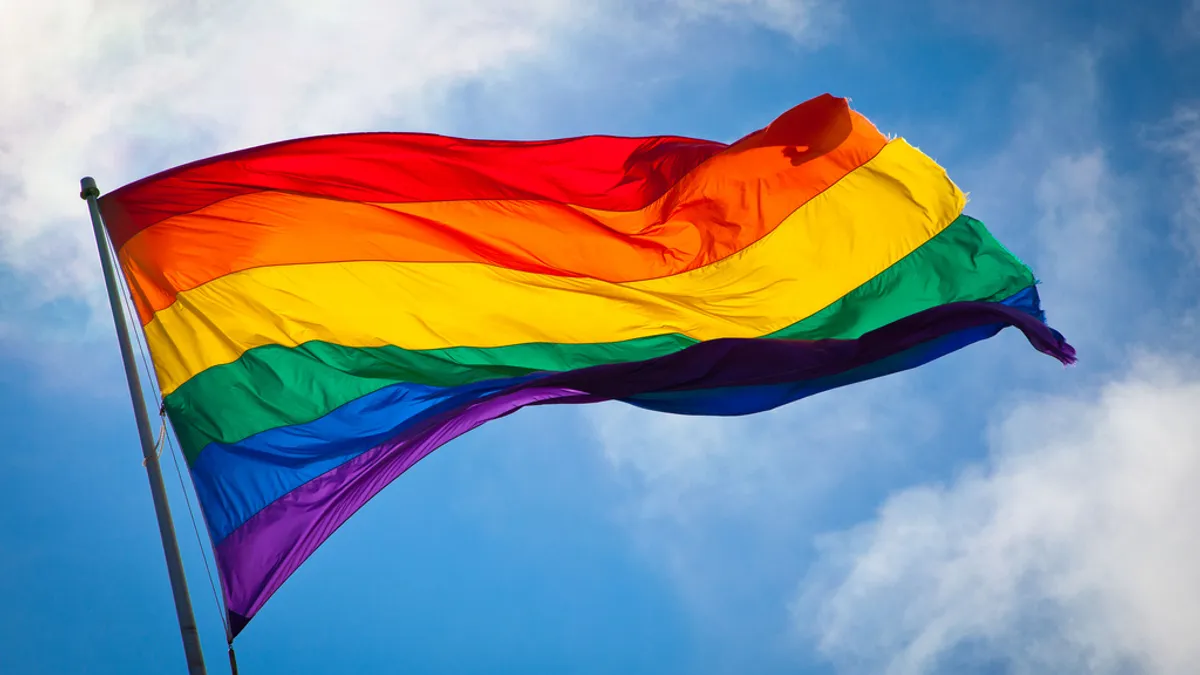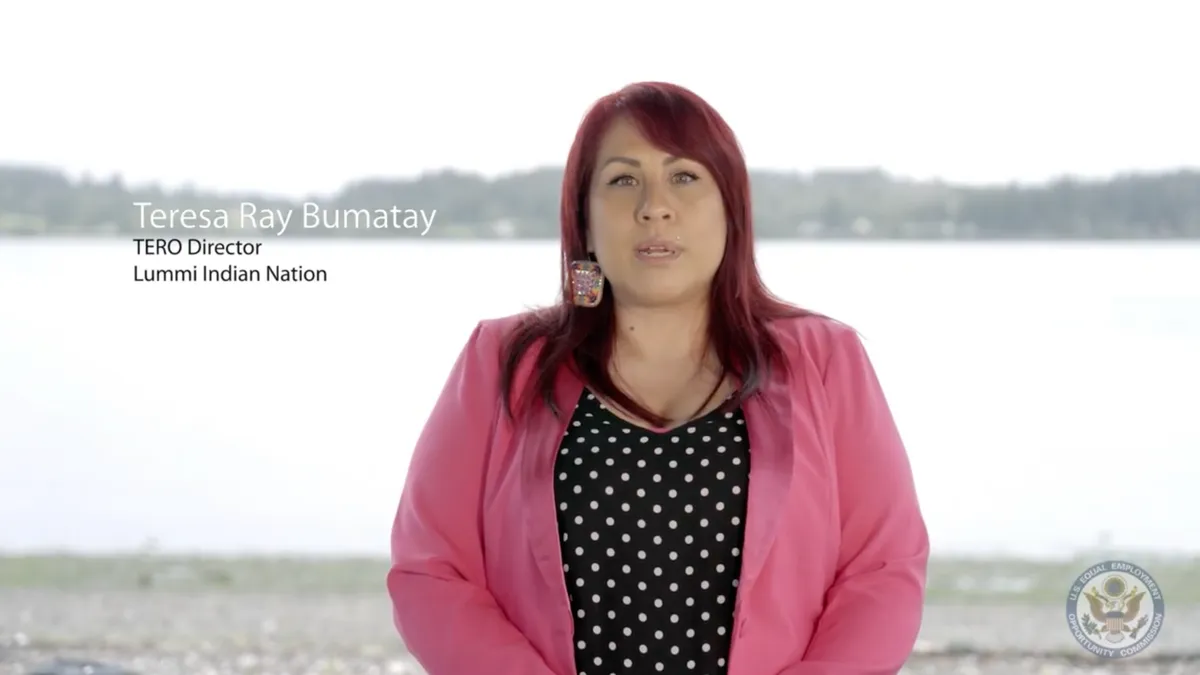As organizations focus on return-to-work strategies amid the COVID-19 pandemic, they have an opportunity to evaluate company standards and processes, including a focus on inclusion, diversity and belonging, according to multiple experts. The U.S. Supreme Court's decision June 15 that it's illegal to discriminate in the workplace based on sexual orientation or gender identity was also a prompt for companies to examine policies.
TIAA enacted a new company policy to offer greater support for employees who are transgender, gender non-conforming or who are considering or in the process of transitioning, Corie Pauling, chief inclusion and diversity officer and head of corporate social responsibility at TIAA, told HR Dive in an interview. The organization announced internally June 24 more protections for privacy, gender pronoun of choice, restroom accessibility and the freedom to dress as the gender of an employee's choosing, Pauling said. The policy at TIAA, which provides financial services in the academic, research, medical, cultural and governmental fields, took effect immediately, she said.
"This policy reinforces our longstanding nondiscrimination statement — we won't discriminate on the basis of sexual orientation or gender identity," Pauling said. "It compliments that by going deeper on gender identity."
To create the new protocols, TIAA did benchmarking with external thought leaders, including the Human Rights Campaign (HRC), Pauling said. The HRC is a national nonprofit organization that promotes civil rights for LGBTQ+ Americans.
"Protection from discrimination in the workplace is more important than ever amid the COVID-19 pandemic, when unemployment rates are high and the prospects of finding a new job low," according to the HRC.
TIAA uses a data-first strategy to advance its inclusion and diversity efforts, Pauling explained.
"Looking at any reputable demographic data, you will quickly learn that the LGBTQ+ community is growing in representation among millennials, Gen Z" and the following generation, Pauling said. Organizations have to be prepared for gender-transitioning talent, whether it's existing employees or talent you want to attract, she added.
TIAA's Alliance LGBTQ+ business resource group (BRG) had input in the creation of the policy as well.
"That's one of the innovation opportunities that our BRGs deliver — helping set company policy in ways that are very meaningful," Pauling said.
Safe and inclusive work environment
HR departments enforce Title VII, which prohibits discrimination based on race, color, religion, sex and national origin, in compliance with U.S. Equal Employment Opportunity Commission regulations. But there's also a need to focus on creating inclusive work environments for members of the LGBTQ+ community, according to research.
Transgender, nonbinary and gender fluid employees would like to be respected and to feel safe and welcomed at work, according to a WFD Consulting report published in October. The employees also value inclusive medical benefits and leave policies, dress codes and guidance on transitioning at work. Employers need to be prepared for the fact that Gen Z employees are entering the workforce with an inclusive perspective of gender identity, WFD said.
But as companies work to create inclusive environments in regard to sexual orientation and gender identity, acceptance by coworkers continues to be a challenge. More than half (68%) of workers who participated in a 2019 Bospar survey said they think equality for LGBTQ+ people is getting better. However, more than a third of respondents said they've been harassed in the workplace because of their sexuality.
"We have had conversations with people who have expressed concern more anecdotally [about the new policy]," Pauling said. "The general position is that we respect the rights of the individual to govern themselves in the way in which they identify. Our policies have said that for years, this gender transition policy advances that, but it's not introducing a new concept to the organization."
Although employees may have different views on gender identity, "there has not been a circumstance in our organization where it's come to some sort of conflict or concern being elevated," Pauling said. However, "if it were to happen, we would endeavor to respect individual rights," and "have a very thoughtful conversation" about whether or not it's true that the policy is infringing upon rights, she said.
The policy goes into detail about facilities access, such as restroom accessibility, Pauling said.
"We have restroom options including gender neutral restroom offerings," she explained. "We provide a listing of those, which we will keep updating. We're providing that proactively with the expectation that our leaders will make sure that there is compliance with the guidance that is included."
There is no "intrusion of privacy" when it comes to restroom use, Pauling said.
"One of the things I say, in respect to restrooms, is everything in a restroom is private," she said. "Everyone should enjoy a bit of privacy in the restroom. No one is intruding on someone else's privacy, necessarily. The automatic assumption of an intrusion of privacy is usually something that we can talk through and get people to a better understanding."
TIAA CEO Roger Ferguson and his leadership team are "150% behind everything we do, and that resonates throughout the organization," she said. The organization understands inclusivity means "supporting employees who make the decision to transition genders in the way that they would like, whether surgery is involved or not," she said.
"What we want our leaders and associates to be able to do is understand their respective expectations in supporting that decision by a gender transitioning associate," Pauling said.






















